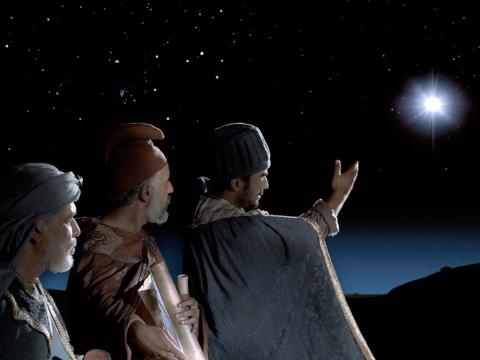The Mission of God in the Bible
PART 2
Our first post on “The Mission of God in the Bible” emphasized the fact that often we mistakenly believe that God’s choice to separate Israel as His chosen people indicated His rejection of the other nations. We suggested that the opposite actually is true! God chose Abram and the Israelite nation so that through them “all the nations of the earth might be blessed.”
We emphasized God’s call for Israel to be a “kingdom of priests” to the people around them (Exodus 19:6) so that through this witness these nations could behold for themselves the wisdom of the God of heaven (Deuteronomy 4:5-8).
Part 1 of this series ended with a question. Did this ever happen: did Israel ever accomplish this mission?
It’s to seek an answer to that question that we now turn our attention.
The narrative of the Old Testament states clearly that many, many times Israel failed in her mission. It appears that no attempt has been made to hide that! But amidst the darkness and disappointment of these stories, there are also many glimmers of light.
Consider individuals such as Rahab the Harlot and Ruth the Moabitess. These heathen ladies decided to cast in their lot with the people of God and (unknown to them) eventually became part of the lineage through which God would send the Messiah!
Another notable woman who came in contact with Israel declared with astonishment that she had heard only a partial report of the grandeur in her own country. Though only the half had been told her, the report so captivated her that she decided she must come and see for herself!
Ruth the Moabitess, Rahab the Harlot, the Queen of Sheba.
Many other notable characters mentioned throughout the Scriptures were not of Jewish descent: Melchizedek, Jethro the priest of Midian, Naaman the Syrian, Nebuchadnezzar, and the Wise Men who came from the East saying, “Where is he that is born King of the Jews? for we . . . are come to worship Him.” How did they know to be looking for a promised, and long-awaited, King of the Jews?
Back to Nebuchadnezzar—this heathen king made a decree to “every people, nation, and language” telling men to reverence the God of the Hebrews because there is no other God that can deliver like Him (Daniel 3:28-29).
Consider King Darius—this powerful ruler sent a written decree to “all people, nations, and languages that dwell in the earth,” commanding men to fear and tremble before the God of Daniel.
Could it be that the Wise Men heard ancient legends passed down from one of these two accounts or even read the decree of King Darius for themselves? Maybe these mysterious stories inspired them to start seeking after the God of the Hebrews with sincerity. Could it be that God honored their search by sending them a dream or a vision with further revelation about a coming One who was to be born King of the Jews?
Whatever the case, somehow these Wise Men received a front row seat among those that had an opportunity to get to personally see Israel’s promised Messiah soon after His birth.
In summary, though Israel failed many times to portray the glory of God to the nations, there were other times throughout the history of the Old Testament that this actually did happen. No doubt the individuals mentioned above are but a sampling of many who came to hear about the God of the Hebrews through the witness of His people.
May we now take our turn, though also often imperfect and failing, to fulfill our part as a New Testament people called to participate in the Mission of God to the nations around us!
by Joel Martin, Executive Committee member

